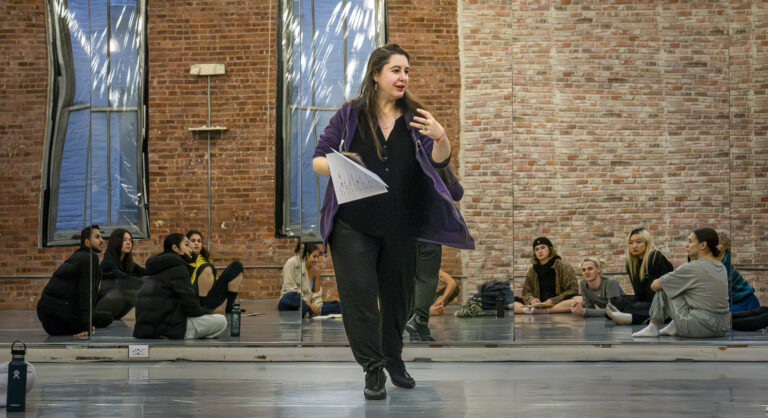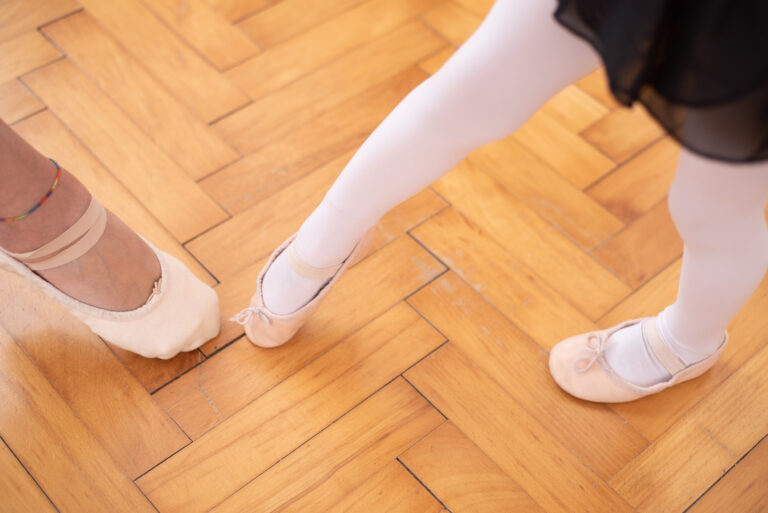
As temperatures drop and our kids return to the grind of fall routines—navigating between dance classes, rehearsals, school, social life, jobs, chores and maybe even college applications—it’s completely normal for teens to feel a sense of overwhelm. Add the uncertainty of a world that is anything but normal, and that sense of overwhelm may be exaggerated.
Still, school counselor Eve Berman notes that pandemic or not, she has noticed that teens’—and parents’—stress levels have risen in recent years, compared to when she first started at Walnut Hill School for the Arts some 20 years ago. “Among students who are setting high-level goals for themselves, there is a growing internal pressure that they have to ‘do it all,’” she says. And it’s not unfounded. In one instance, Berman says that with so many more applicants applying to colleges these days, acceptance, actually, is harder. “Pressures are more intense and more universal compared to when we were this age,” she says.
Thankfully, there is an uptick in discussion surrounding stress and self-care, which point to an increasing awareness and education about mental health needs. So how can you be a first point of support for your teen when the going gets tough? Read on for Berman’s advice.
Ask how their workload is affecting them.
Initiate an open, nonjudgmental conversation. “Say, ‘How are you doing with balancing your schedule?’” suggests Berman. “Don’t worry that asking about stress levels will be overwhelming.” Being direct is always better than making assumptions. “Just ask them what’s going on,” she says. “You might try, ‘From my perspective, I’m seeing that you seem exhausted and kind of down after school. Is there something going on?’”
Keep in mind that your child may answer that everyone feels stressed, and that’s OK. Normalizing stress can be helpful, because many times, teenagers feel like they’re the only ones going through something. At this point, Berman suggests something like: “I understand a lot of people get stressed, but let’s just talk about you—how you manage stress and what you think I can do to help.”
Let your teen dancer take the lead.
As in other instances of problem-solving with your teen, give them some autonomy to figure out what they need—whether that’s adjusting schedules based on priorities or future goals, finding a dance teacher or counselor to speak with, or simply continuing to listen without judgment. “Students want to be the captain of their own ship or feel like they’re in control of their narrative. It’s important to be just a guide,” Berman says. This doesn’t mean letting your kid skip out on chores just because they don’t want to do them—but it may mean some collaboration on when or how those chores get completed.
Listen to and trust your child.
It can be a challenge to understand or accept your child’s schedule when your dancer prioritizes dance over school—or even a social life. “Be honest with your teen about where your concerns are coming from,” says Berman. “But give them the space to talk and let them know you want to understand their perspective. For them to be open and to feel supported, they have to know they’re understood.”
Teens are also more in tune with their needs than we might assume—and if they feel supported, they’ll be honest about their school-dance-and-social-life balance. “They know when their schedule feels right,” says Berman, adding that they also often know what needs adjusting; if they don’t, parents can help them self-reflect to figure it out.
Know when to step in.
Still, there are times when you may need to take the reins. “If your teenager isn’t sleeping or eating enough, staying up until three in the morning because they have to get everything done, or missing social events because they feel like they can’t take time to hang out with their friends, that’s when a parent needs to step in,” says Berman. “At this age, developmentally, it’s so important for teens to feel good about themselves socially. And when they feel like they don’t have enough time to socialize, that’s when things are out of balance.”
But balance means something different to everyone—there is no one-size-fits-all option. One child may tell you they need social interaction every night, while another may be fine with seeing friends only on weekends. “You’ll know when they’re being authentic,” she says. “One mistake some parents often make is imposing their own sense of balance onto their kids. A mom might say, ‘Oh, she’s just like me and this is what she needs.’ Sometimes that’s true—but not always.”
Keep in mind that conversations about balance should be ongoing. Priorities will shift, and your 14-year-old dancer will have different needs at age 18. Your child may even begin putting dance above and beyond all other activities one year, but if she decides six months later that her goals have changed, that’s OK. “It all comes down to really having faith that your child has a good head on their shoulders,” says Berman. “They are smart, they are capable, and they will land on their feet.”




